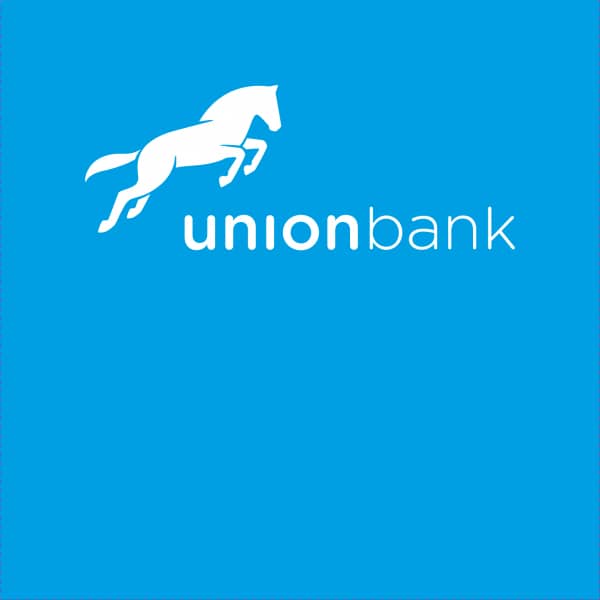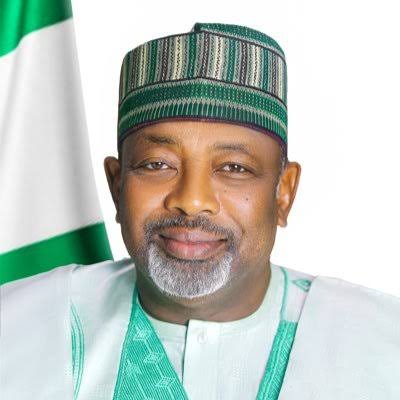Union Bank of Nigeria Plc
Group Audited Financial Statements for the Year Ended December 31, 2022
Strong revenue growth driven by core business deepening
Union Bank has announced the release of its audited financial statements for the year ended 31st December 2022, which reflects strong financial performance despite macroeconomic headwinds.

Union Bank maintained consistent success due to the disciplined execution of its go-to-market strategy focused on deepening its core business while exploring new areas of opportunity to acquire, engage, and retain customers.
Bank Financial Highlights:
● Gross Earnings: up 19% to ₦208.2 billion (₦175.0 billion in 2021), driven by strong
growth in Net Interest Income.
● Net Interest Income: up 33% to ₦59.1 billion (₦44.3 billion in 2021) driven by growth in earning assets.
● Net Operating Income after impairments: up 10% to ₦110 billion (₦99.7 billion in 2021).
● Profit before Tax: up by 47% to ₦30.2 billion (₦20.5 billion in 2021).
● Operating Expenses: marginally grew by 0.4% to ₦79.4 billion (₦79.2 billion in 2021), reflecting tight cost control despite inflationary pressures.
● Gross Loans: up 11% at ₦1.0 trillion (₦899.1 billion in December 2021) as we expand our lending to vital economic sectors of opportunity.
● Customer Deposits: up 9% at ₦1.48 trillion (₦1.36 trillion in December 2021) as we expand our product base and digital channels.
Key Operational Highlights:
Retail & Digital
Digital
• Channels & Platforms: Union Bank in 2022 invested in strengthening its technology architecture to drive key processes and serve more customers through digital and agent channels. Consequently, active users on UnionMobile increased by 15.7% to 3.8 million users, and active UnionDirect Agents grew by 62.7% to 51,737. This led to an increase in transaction value and volume on UnionMobile by 121% and 20.4%, respectively.
In 2022, we launched a chatbot that enabled real-time interactions with customers. The chatbot has resolved 1.3 million customer complaints, demonstrating its effectiveness in streamlining the complaints resolution process. In addition, we have made several other investments to enhance our customers’ experience. As a result, we have seen significant improvements in the efficiency and efficacy of our customer complaints resolution.
• Digital Propositions: Our priority has been to venture into unexplored avenues within the digital space to generate fresh revenue streams for the Bank. As part of this strategy, we have broadened the usage of our personal finance and lifestyle investment application, M36, which was first introduced in 2021. M36 empowers customers to grow, manage and invest their wealth in high-yield instruments through the self-service platform.
Retail Offerings
The Bank grew its retail deposits by 14% to N675.8 billion from N594.9 billion in 2021. Some of the initiatives which contributed to this growth include:
• Save & Win Palli Promo 2: We rolled out the campaign’s second edition and rewarded over 611 customers with a combined sum of ₦55.5 million. The promo aims to generate low-cost deposits.
• Target Savings Campaign: In time for the World Cup, we rewarded 596 customers with ₦26 million in our flagship target savings campaign and closed out our five-year Target Savings Product (TSP) – UnionKorrect Qatar. Ten customers were rewarded with cash prices of ₦5 million, and 375 customers with sports jerseys.
• Workplace Banking: We re-launched Workplace Banking, our exclusive proposition designed to offer employees convenience while providing support to achieve their goals and aspirations.
Citizenship, Sustainability, and Innovation
• In 2022, we prioritised inclusion and sustainability while focusing on business growth. In doing so, we impacted our employees, customers, and the communities we serve while contributing towards the United Nations Sustainable Development Goals.
― UnionCares: As a yearly tradition, we extend our assistance to the community by providing food boxes to those in need. In 2022, our staff
contributed to this cause by distributing over 1,700 food packages to families all over Nigeria. Furthermore, we extended our support to 15 Non-Governmental Organisations (NGOs), such as the Chess in Slums Foundation and the Special Olympics Nigeria, by providing donations to supplement their commendable efforts.
―Quality Education:We partnered with impactful organisations, including Give Girls a Chance and Child Lifeline, to provide full scholarships to twenty
girls and ten boys in Abuja and Lagos. As part of our Financial Literacy Day and World Savings Day activities, we engaged with more than 4000 students and their teachers.
― Youth Empowerment and Development: In July 2022, we successfully graduated 52 new ‘Techies’ from our first-ever Tech Job Boot camp. This recruitment and training program has significantly contributed to accelerating our go-to-market strategy and further consolidating our position as a formidable player in the financial sector.
Union Bank has been a long-standing supporter of LEAP Africa since 2013, enabling them to empower and equip 170 young social innovators and entrepreneurs to scale their community-changing ideas sustainably over the years. Moreover, our sponsorship of the 2022 Leadership, Empowerment, Achievement, and Development (LEAD) Camp by Junior Achievement Nigeria has empowered more than 300 young girls with critical thinking skills. Through this initiative, we have impacted more than 700 girls over the past eight years.
― Employee Volunteering: Our employees have shown unwavering compassion towards communities and social causes. In 2022, over 265 of our
employees devoted nearly 1000 hours to volunteering for various bank- sponsored initiatives. These initiatives included mentoring sessions with the Women’s Technology Empowerment Centre (WTEC), which aims to promote women’s participation in Science, Technology, Engineering, and Mathematics (STEM), financial literacy drives, SME workshop clinics with social innovators, and visits to orphanages to extend their support.
Commenting on the results, Mudassir Amray, MD/CEO, said:
“Despite the macroeconomic headwinds of 2022, we recorded strong performance across key financial and operational indicators. We were focused on our strategy of deepening our core business segments whilst enhancing our digital channels and service propositions to customers. On the back of this, we are increasing our customer acquisition and engagement, translating into higher revenues across our regions.
The Bank’s gross earnings grew by 19% to N208.1 billion from N175 billion in 2021. Whilst non-interest income declined marginally by 1.0%. Net interest income after impairment grew 26.1% to N55.8 billion from N44.2 billion in 2021 on the back of increasing responsible risk assets. Profit before tax closed at N30.2 billion, representing a growth of 47.1% from N20.5 billion recorded in 2021.
In 2023, we will remain focused on executing our strategic initiatives, which are centred on pursuing additional opportunities to diversify our revenue sources while strengthening our core business. We also look forward to completing the merger of Union Bank of Nigeria and Titan Trust Bank, which began in 2022. The transition has gone smoothly, and I am confident that the combination will make us more formidable and well-positioned to capitalise on market opportunities.
As we progress into 2023, I have no doubts that we will scale through all the macroeconomic pressures and sustain this growth momentum with continued support from the new core investors and board and continued trust from our customers to serve them.”
Speaking on the FY 2022 numbers, Chief Financial Officer Joe Mbulu said:
“Our financial performance is a testament to the disciplined execution of our plans for the year and resilience against all odds. While pursuing liability generation and responsible risk assets, we maintained operational efficiency, managing cost drivers and avoiding wastage.
Operating expenses increased marginally by 0.43% due to increased non-discretionary regulatory costs. Our cost-to-income ratio dropped to 72.5% from 79.4% in 2021 due to cost- control measures implemented during the year.
The Bank’s balance sheet remains strong, with total assets increasing by 8.8% to N2.79 trillion due to growing loans and advances to customers. We expanded our net loan book by 11.5% from N868.8 billion in 2021 to N968.9 billion in 2022. In addition, customer deposits increased by 8.8% to N 1.48 trillion.
While we seek to grow our risk assets, maintaining quality assets remains a key priority. As a result, our NPL ratio reduced from 4.3% to 4.0%, and the capital adequacy ratio remained within regulatory limits at 14.4%.
Financial Summary
Balance Sheet (in billions of Naira) Total Assets
Gross Loans & Advances
Customer Deposits
Shareholders’ Funds
Ratios
Coverage Ratio (incl. regulatory risk reserves)
Average Liquidity Ratio (regulatory minimum – 30%)
Non-Performing Loan Ratio Net Asset Value per share Capital Adequacy


 Business6 months ago
Business6 months ago
 Business6 months ago
Business6 months ago
 celebrity radar - gossips6 months ago
celebrity radar - gossips6 months ago
 celebrity radar - gossips6 months ago
celebrity radar - gossips6 months ago













